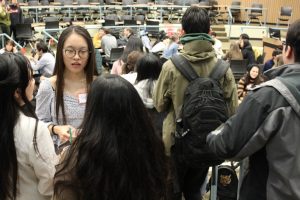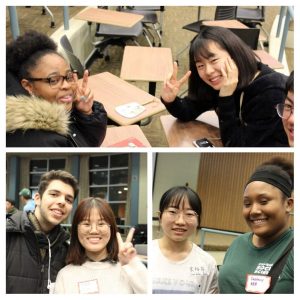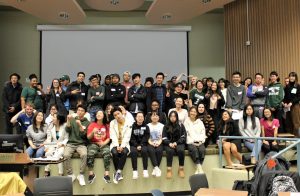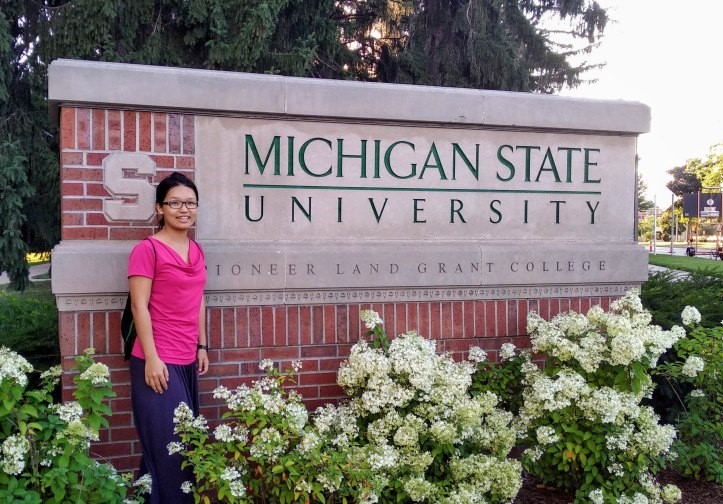By Jou-Chun Lai, Chinese FLTA at Michigan State University (MSU)
“我覺得我好像跟沒有出國一樣。”
I feel that I didn’t even go abroad.
A Chinese girl I met on campus uttered this phrase after I’d been at Michigan State University (MSU) as a Fulbright Foreign Language Teaching Assistant (FLTA) for a month. It’s not hard to imagine why this student made this statement: my host institute, MSU, has a large number of students from China.
The Chinese community at MSU is very close. You can join or get information from Chinese student organizations, easily find Chinese roommates, and even work in research laboratories where everyone else is Chinese. Because of this far-reaching comfort zone, even if someone in the Chinese student community wanted to practice English, it’s hard to find a way to do so.
However, I noticed that MSU also has between 130-150 students learning Chinese as a foreign language. These students might be American, Chinese-American, or from other countries. Surprisingly, only a few of them have friends who are Chinese students.
Then, an idea came to my mind: Why not build a bridge between these two groups?
This is how everything started.
First, I worked with a student club with only one member, “ForeignersLearnChinese.” We redefined the club’s goal and started to recruit a new executive board mid-semester. During recruitment, the idea of a “Chinese Language Mingle” event came together, and we began planning. The main idea of the event came from the concept of having a language exchange partner, so we invited native Chinese students to be our table leader volunteers. Each table had a conversation topic based on different Chinese speaking levels (Beginner, Intermediate, Advanced).
Participants practiced their Chinese through conversations about their family, hobbies, and other common themes. We also had some interesting conversations about the difference in dating culture between China and the United States. However, the most popular table was “Chinese Internet Slang and Abbreviations.” This is something you never learn in the classroom, but can be very practical in your daily life. If you learn some slang to use with native speakers, you’ll seem very knowledgeable and even cool.

At the end of the event was our first language partner meeting. Using a pre-survey from students learning Chinese and native Chinese speakers, we matched language pairs based on mutual majors or hobbies. After the first meeting at our event, they could hang out by themselves, choosing to practice more Chinese or English.

It was amazing to see them find their partners, start to talk in Chinese, and maybe begin new friendships. I started to imagine that as my students began to communicate with each other more, they would come to not only know more authentic Chinese, but also understand the diversity of the Chinese language. I also imagined that the native Chinese students would gain deeper insights into American culture and student life.

As a FLTA, I know that I’m just a passerby, and leaving soon. These students might forget everything I practiced with them in the textbook, but I believe having a local friend who is a native speaker is the best way to keep your motivation up and practice a foreign language. Language is not just a subject, but a medium to connect with others. Having a chance to build a bridge for my students is the most meaningful thing I’ve done during this journey.
In the beginning, I always felt disheartened reading about other Fulbrighters who always seemed brilliant and successful. It seemed like I was the only one who was lost and couldn’t find meaning and value. If you also feel the same way sometimes, just remind yourself that it’s normal.

